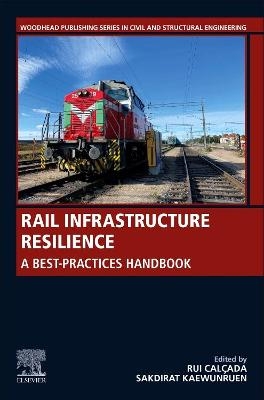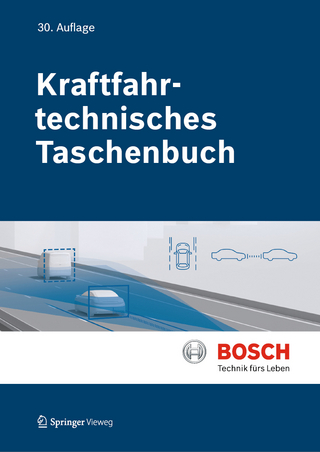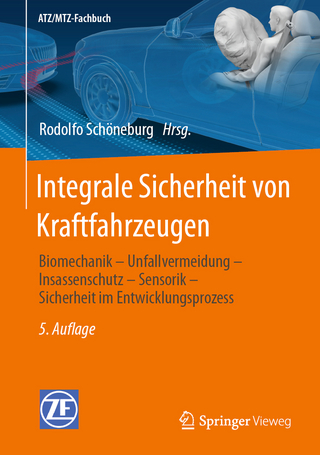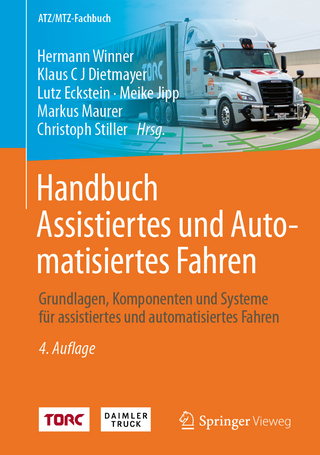
Rail Infrastructure Resilience
Woodhead Publishing (Verlag)
978-0-12-821042-0 (ISBN)
Rail Infrastructure Resilience: A Best-Practices Handbook presents developed improvement methods for rail infrastructure systems, toward resilience to extreme conditions. It shows how best to use new information in the engineering design, maintenance, construction and renewal of rail infrastructure resilience, through knowledge exchange and capability development. The book presents the outcome of a major European research project, known as the RISEN project. RISEN aimed to enhance knowledge creation and transfer using both international and intersectoral secondment mechanisms among European Advanced Rail Research Universities and SMEs, and Non-EU, leading rail universities, providing methodological approaches and practical tools for restoring and improving railway infrastructure systems for extreme events. Edited and written by members of this project, this book will be essential reading for researchers and practitioners hoping to find practical solutions to the challenges of rail infrastructure resilience.
Professor Rui Calcada is Full Professor in the Faculty of Engineering at the University of Porto, in Portugal, Head of the Civil Engineering Department, and Coordinator of the CSF-Centre of Competence in Railways. He is a Member of the Scientific Council of FEUP, and a Member of the Management Board of the R&D unit CONSTRUCT, in the Institute of R&D in Structures and Construction. He received his PhD and Habillation in civil engineering from the University of Porto. His research focusses include advanced models for analysis of the train-infrastructure dynamic interaction; dynamic effects on bridges and transition zones; fatigue assessment for railway bridges; track-structure interaction; condition monitoring systems; and advanced algorithms for condition assessment of railway infrastructure. He is the Principle Investigator of 12 major research projects. He currently works on the European Commission’s RISEN Project (Rail Infrastructure Systems Engineering Network), which has received funding from the EU’s Horizon 2020 program. Dr Sakdirat Kaewunruen is Senior Lecturer in Railway and Civil Engineering in the School of Civil Engineering at the University of Birmingham in the UK. He is also Coordinator of the RISEN project. He has extensive industry experience in the field of structural, civil and track engineering both in industry and academia. With over 14 years in the rail industry and regulatory environments prior to joining academia, he has an array of research interests, including rail engineering, track design, track components, structural and geotechnical engineering, maintenance and construction. He received his PhD in civil engineering from the University of Wollongong in Australia, and has also completed an Emerging Leader Program with the John F. Kennedy School of Government at Harvard University. He coordinates the EU-funded RISEN project and is a CI of S-CODE. He has lead numerous projects, sits on various industry committees, and has published widely in the field.
1. Introduction
2. Railway vulnerability and resilience
3. Rail resilience to climate change; embedding climate adaptation within railway operations
4. Rail Transport Resilience to Demand Shocks and COVID-19
5. Management of railway stations exposed to a terrorist threat
6. Rail infrastructure systems and hazards
7. Wheel-rail dynamic interactions
8. Wheel/Rail Management under extreme conditions
9. Train-track interactions
10. Approaches for weigh-in-motion and wheel defect detection of railway vehicles
11. Advances in ground-borne vibration management
12. Lateral resistance of continuous welded rail tracks with different types of sleepers
13. Diagnostics and management methods for sleepers
14. Maintenance strategies for rail ballast and formation
15. Inspection technologies for railway tracks
16. Risk-based Maintenance of Turnout systems
17. Railway Bridge under increased traffic demands
18. Structural health monitoring strategy for novelty detection in railway bridges using traffic induced dynamic responses
19. Improved dynamic resilience of railway bridges using external dampers
20. Monitoring and management of OHLE
21. Overhead Conductors
| Erscheinungsdatum | 06.06.2022 |
|---|---|
| Reihe/Serie | Woodhead Publishing Series in Civil and Structural Engineering |
| Sprache | englisch |
| Maße | 152 x 229 mm |
| Gewicht | 840 g |
| Themenwelt | Technik ► Fahrzeugbau / Schiffbau |
| ISBN-10 | 0-12-821042-7 / 0128210427 |
| ISBN-13 | 978-0-12-821042-0 / 9780128210420 |
| Zustand | Neuware |
| Haben Sie eine Frage zum Produkt? |
aus dem Bereich


